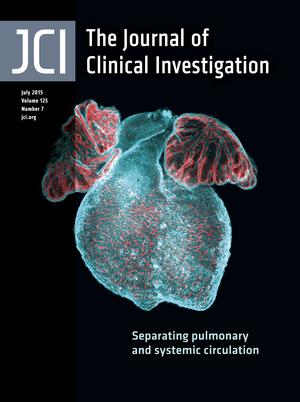BOSTON � The identification of a protein that enables the body to overcome resistance to the hormone leptin could help scientists move one step closer to creating a drug therapy to help prevent and treat obesity. The findings, made by researchers at Beth Israel Deaconess Medical Center (BIDMC), are reported in the April 16 issue of Developmental Cell.
Nearly all obese individuals are resistant to leptin, the hormone that signals the brain that our appetites are satisfied and we can stop eating. For this reason, explains study co-senior author Barbara Kahn, M.D., Chief of Endocrinology and Metabolism at BIDMC, efforts made several years ago to use leptin in drug form to treat obesity were largely unsuccessful. �The majority of obese people actually have high levels of leptin,� explains Kahn, who is a Professor of Medicine at Harvard Medical School. �But they are unable to put it to use.�
In this new research, Kahn, together with co-senior author Benjamin Neel, M.D., Ph.D., � Director of the Cancer Biology Program at BIDMC who studies the biological functions of molecules known as protein-tyrosine phosphatases � initially began studying PTP1B (protein tyrosine phosphatase 1B) to determine its role in regulating insulin receptor signaling. �We hypothesized that in the absence of the PTP1B protein, you would have increased insulin sensitivity and protection against type 2 diabetes,� adds Kahn.
To test this hypothesis, researchers created a group of knockout mice, which lacked the PTP1B protein. As expected, these mice displayed hypersensitivity to insulin under ambient conditions as well as when they were given a glucose test. �This made it unambiguous that PTP1B was indeed increasing insulin sensitivity,� Neel explains. �What was unanticipated, however, was that the [knockout] mice were surprisingly lean.
In fact, when fed a high-fat diet, the PTP1B knockout mice gained much less weight and showed markedly diminished body fat when compared with a group of control mice. �They turned out to be resistant to a high-fat diet that is equivalent to what most Americans probably routinely consume,� adds Neel, who is also a Professor of Medicine at Harvard Medical School.
Continue Reading Below ↓↓↓
Further testing revealed that the knockout mice were exhibiting increased energy expenditure, �comparable to highly trained athletes,� according to Neel, who adds that the authors began to consider that PTP1B was regulating the leptin signaling pathway, probably by targeting the Jak2 protein molecule.
This finding, for the first time, offers scientists a molecular approach to overcome leptin resistance, and provides a target for the development of drugs to treat both obesity and diabetes. �Since almost all forms of obesity are leptin-resistant, a drug that would act downstream of the leptin receptor could conceivably result in significant weight loss,� says Neel. �Since PTP1B additionally acts to lower insulin resistance, it could, in principle, provide a very powerful approach to treating diabetes as well.�
Study co-authors include BIDMC researchers Janice M. Zabolotny, Ph.D., Kendra K. Bence-Hanulec, Ph.D., Fawaz Haj, Ph.D., Yongping Wang, M.S., Yasuhiko Minokoshi, M.D., Ph.D., Young-Bum Kim, Ph.D., and Joel K. Elmquist, D.V.M., Ph.D., and Milennium Pharmaceuticals researchers Alain Stricker-Krongrad, Ph.D. and Louis A. Tartaglia, Ph.D. The study was funded by grants from the National Institutes of Health (NIH) and the American Diabetes Association.
Source: Beth Israel Deaconess Medical Center










